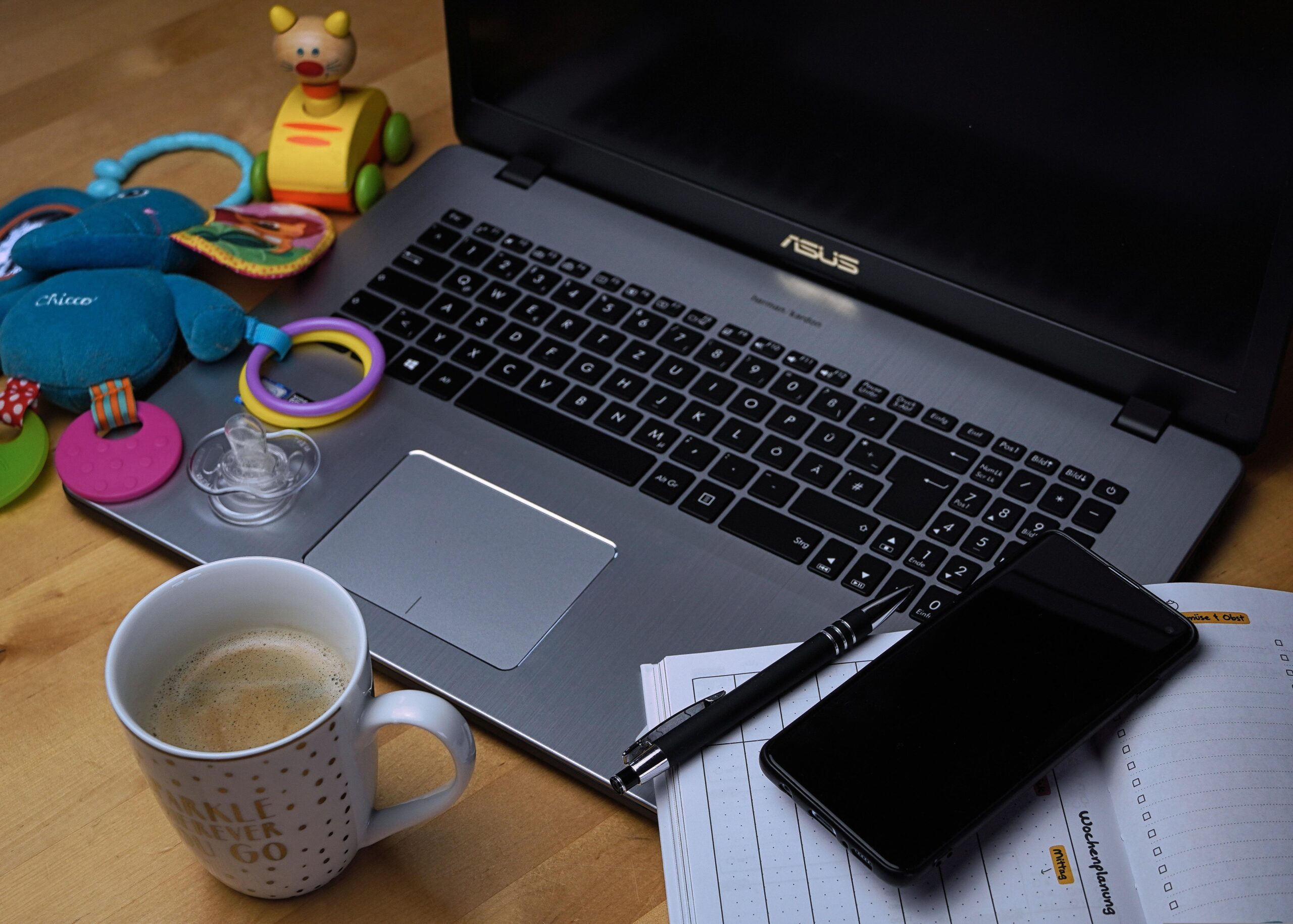Achieving a healthy work-life balance is extremely important for general well-being, productivity and personal satisfaction. In today’s fast-moving world, finding a balance between professional responsibility and personal life is difficult. Conscious effort, strategic planning and effective time management allow individuals to create a sustainable balance that promotes success and fulfillment in both areas. Many people find it difficult to separate from work due to certain notifications, emails, and work culture. Determining specified working hours and their compliance can greatly improve the balance. Turning off these non-hour work-related notifications allows individuals to focus on personal activities, relationships, and relaxation.
Time management is another important component. Prioritizing tasks based on urgency and meaning can help individuals effectively allocate time. Using tools such as to-do lists, digital calendars, and productivity apps, workflows can optimize and prevent stress per load. Pomodoro technology, including short focal interval breaks, can increase productivity and prevent burnout. Tasks and social engagement related to overwork can lead to fatigue and reduced productivity. By understanding realistic expectations decisions and limitations, individuals can focus on quality rather than quantity. It is important to recognize that NOs for specific tasks and responsibilities do not address a lack of ambition, but rather strategic decisions to maintain a general well. Definitions of morning routines that include movement, meditation, or personal time can set the positive tone for the day. Similarly, relaxation activities such as reading, journaling, and time with relatives may help you spend the night in your body and mind. Regular exercise, a balanced diet and adequate sleep contribute to all energy and intellectual clarity. Physical activities such as walking, yoga, and strength training can help reduce stress and improve focus. Eating nutritious and hydrated hydration during the day provides continuous support for energy and productivity. Sleep prioritization ensures that your body and mind have reasonable time to recover, leading to improved decisions – making and emotional resilience. Spending time with family and friends strengthens bonds and provides emotional support. Something for inclusion of hobbies, joining community activities, or volunteering can provide meaning and fulfillment beyond work. Strong social connections contribute to general well-being and provide the required counterweight for professional responsibility.
Workplace flexibility is becoming increasingly important when achieving workplace equilibrium. Remote work options, flexible scheduling and hybrid work agreements allow individuals to adapt their working hours to meet their individual needs. Employers that support flexibility contribute to employee job satisfaction and increased general wells. Open communication with your boss about workloads and expectations can also help you create a healthier work environment. Short breaks like stretching, walking, and deep breathing exercises can revive your mind and increase your productivity. Long breaks such as lunch from a desk or outdoors can help individuals recharge themselves and work with an updated perspective. Practice through meditation, deep breathing, or gratitude practices can improve emotional regulation and reduce fear. The development of stress decisions and coping mechanisms such as journaling, creative activities, and searching for professional support can prevent chronic stress and negative effects. Finding a sense of work, collaborating with personal values and participating projects, and inspiring passions can create more valuable work experiences. If an individual feels filled with his or her job, he or she is more likely to maintain his or her motivation and enthusiasm without being overwhelmed by his or her responsibility.
Drawing out technology is another effective strategy to improve work-life balance. Certain connectivity can lead to mental fatigue and reduced focus. If you set aside the free time on a specified screen, for example B. Individuals may be present in their personal life, either during meals or before bed. Offline activities such as reading, outdoor relaxation, and personal conversation can help you maintain a rounded lifestyle.
Self-care must be an unnegotiable aspect of daily life. Activities that promote relaxation and happiness, such as massages, spa treatments, and quiet reflexes, can meet your energy levels. If you allocate time to self-safribilis without guilt, the individual will provide you with your health and happiness in addition to your professional duties. Whether at work or at home, transferring responsibility with colleagues, family members, or hired professionals can reduce stress and create a more balanced workload. Effective delegation allows individuals to focus on high-priority tasks and prevent burnout from excessive responsibility. Regularly, personal and professional obligations can identify areas where they need to improve. Small and gradual changes based on developing priorities guarantee long-term balance and long-term satisfaction. It’s not about perfect balance, it’s about making intentional decisions that are consistent with personal wells and professional efforts. By including effective time management, limiting decisions, health prioritization and fostering wise relationships, individuals can create a fulfilling, sustainable lifestyle that supports both work and personal well-being. Understanding the most important things in both areas allows individuals to allocate time and energy accordingly. Identifying basic values and aligning everyday activities with them can help create feelings for purpose and direction. By determining specific goals for work and personal life, individuals can advance in both fields without being overwhelmed. Long distance work, flexible schedules and hybrid work models allow individuals to adapt their working hours to fulfill their individual obligations. Employers that support flexibility contribute to employee job satisfaction and increased general wells. Communication with your boss about workloads and expectations can help you create a more balanced and supported work environment. Using time blocking techniques, digital calendars and productivity apps can help individuals build their days efficiently. Pomodoro technology, which involves working in intensive intervals with short breaks, can increase productivity and prevent burnout. Highly influential tasks and prioritizing non-essential representatives ensure time is spent on meaningful activities. Defining specific working hours and adhering to them can help you maintain a structured routine. If you turn off work-related notifications during personal time, the individual may be entirely present in his or her personal life. Physical restrictions set, such as creating designated work areas at home, can help to strengthen the separation of work and personal responsibility. Body health, including regular exercise, nutritious foods and adequate sleep, directly affects productivity and general wells. Including mindfulness practices such as meditation, deep breathing, and journaling promote relaxation and stress management. Self-saflin prioritization ensures that individuals have resistance and endurance to effectively meet professional and personal requirements.
Maintaining strong relationships and social connections improves the integration of working life. Spending time with family and friends to participate in social activities and participate in hobbies gives them a sense of fulfillment and emotional support. A strong support system encourages them in challenging times and contributes to general life satisfaction. Regular communication with relatives promotes deeper compounds and a sense of belonging. Continuous connectivity can lead to mental fatigue and reduced focus. Offline activities such as device-free zone determination, screen time limits, reading, outdoor relaxation, and creative activities can help you maintain a rounded lifestyle. The intent of digital consumption promotes mindfulness and presence in daily interactions. In the workplace, collaboration with colleagues and widening responsibility increases efficiency. At home, sharing home tasks with family and sharing professional service attitudes can reduce the stress and time of meaningful activities. Recognizing that you can’t do everything yourself will promote a sense of balance and ensure that responsibility is effectively managed. Deciding on stress fire extinguishers and implementing coping strategies such as movement, creative expression, and therapy will promote emotional well-being. If you are looking for professional instructions as needed, it will ensure that stress will not be overwhelming or harmful to your health.
Creating a structured daily life provides stability and control. Start your day with a morning routine that includes personal time, movement, or purpose. Similarly, the end-of-evening completion indicates a transition from work to personal time with relaxation activities such as reading, journaling, and time with relatives. A consistent routine promotes productivity and improves general well-being. Budgeting, savings, and proper financial decisions create security and security. Financial management ensures that individuals are pursuing personal profits, investing in experience, and investing in future plans without inappropriate financial burdens. Recognitions of both professional and personal success become increasingly positive behaviors and promote continuous growth. Take your time to think about success, be grateful and appreciate, improve your general wells and satisfaction. By implementing effective time management strategies, determining clear limits, prioritizing self-sufficiency, and promoting wise relationships, individuals can create a sustainable and fulfilling lifestyle. The key is to find rhythms tailored to personal values, allowing for productivity and enjoyment both in the workplace and in the personal life.



